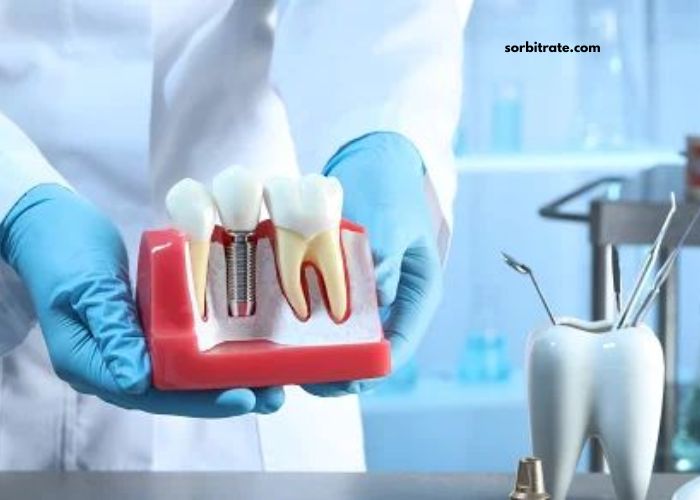Oral health is a crucial part of overall wellness. A healthy mouth not only enhances your smile but also plays a vital role in digestion, self-confidence, and preventing serious health conditions. In this guide, we decode dental care to help you achieve and maintain optimal oral hygiene with practical, professional, and easy-to-follow tips.
Understanding Dental Health
Dental health is more than just having white teeth. It encompasses the health of gums, tongue, lips, and the entire oral cavity. Poor oral hygiene can lead to cavities, gum disease, bad breath, and even systemic health issues like heart disease and diabetes.
Why Dental Care Matters
1. Prevents Tooth Decay and Gum Disease
Regular brushing, flossing, and dental checkups help eliminate plaque — a sticky bacterial film that can lead to cavities and gum infections if left unchecked.
2. Protects Overall Health
Oral infections can spread to other parts of the body. Studies link poor oral health to conditions like cardiovascular disease, respiratory infections, and pregnancy complications.
3. Improves Quality of Life
Good dental hygiene ensures fresh breath, a beautiful smile, and confidence in social and professional interactions.
Daily Dental Care Tips for a Healthier Mouth
1. Brush Twice a Day
Use a soft-bristled toothbrush and fluoride toothpaste. Brush gently in circular motions for at least two minutes — once in the morning and once before bed.
2. Don’t Skip Flossing
Floss daily to remove food particles and plaque from between teeth and under the gum line where brushes can’t reach.
3. Use Mouthwash
An antimicrobial or fluoride mouthwash can help reduce bacteria, freshen breath, and strengthen enamel.
4. Stay Hydrated
Drinking plenty of water washes away food particles and bacteria. It also keeps your mouth moist and promotes saliva production, which is essential for neutralizing acids.
5. Avoid Sugary Foods and Drinks
Limit intake of sweets, carbonated beverages, and acidic foods. These promote the growth of harmful bacteria and weaken enamel.
6. Eat a Balanced Diet
Consume plenty of fruits, vegetables, lean proteins, and calcium-rich foods. Vitamins and minerals help maintain gum health and prevent tooth loss.
7. Replace Your Toothbrush Regularly
Change your toothbrush or electric brush head every 3 to 4 months or sooner if the bristles are frayed.
8. Clean Your Tongue
Use a tongue scraper or the back of your toothbrush to clean your tongue daily. This removes bacteria and helps prevent bad breath.
Habits That Harm Your Dental Health
1. Smoking and Tobacco Use
Smoking stains teeth, increases tartar buildup, and raises the risk of gum disease and oral cancer.
2. Nail Biting and Teeth Grinding
These habits can wear down enamel, cause jaw pain, and lead to tooth fractures.
3. Using Teeth as Tools
Avoid opening packages or bottles with your teeth to prevent chipping and damage.
Visiting Your Dentist: What You Need to Know
1. Schedule Regular Checkups
Visit your dentist at least twice a year for cleanings and exams. Early detection of problems saves time, pain, and money.
2. Discuss Concerns Promptly
Report any signs of toothache, bleeding gums, or unusual oral symptoms immediately. Early treatment is always more effective.
3. Consider Preventive Treatments
Ask about fluoride treatments, dental sealants, and other preventive measures, especially for children and teens.
Special Dental Care Tips for Different Life Stages
1. Children and Teens
-
Supervise brushing and flossing.
-
Use fluoride toothpaste as recommended.
-
Encourage healthy snacking habits.
2. Adults
-
Focus on gum health.
-
Be proactive with dental visits and cleaning.
-
Use desensitizing toothpaste if needed.
3. Seniors
-
Use products designed for dry mouth.
-
Pay attention to signs of gum recession or loose teeth.
-
Consider dentures or implants for missing teeth.
Modern Tools to Enhance Your Dental Routine
1. Electric Toothbrushes
Offer better plaque removal and are easier for people with mobility issues.
2. Water Flossers
Use a pressurized stream of water to clean between teeth — great for braces or sensitive gums.
3. Apps and Reminders
Mobile apps can track brushing time, remind you of dental appointments, and provide personalized oral care tips.
Creating a Dental Hygiene Routine That Works for You
-
Set specific times for brushing and flossing.
-
Use a bathroom mirror checklist to track your daily oral care.
-
Keep travel-sized oral care products in your bag or desk for on-the-go hygiene.
When to Seek Immediate Dental Attention
Call a dentist right away if you experience:
-
Sudden tooth pain or swelling
-
Broken or knocked-out tooth
-
Bleeding that doesn’t stop
-
Sores in the mouth that don’t heal
Early response to dental emergencies can prevent permanent damage and reduce complications.
FAQ: Frequently Asked Questions
Q1: How often should I visit the dentist?
A: It’s recommended to see a dentist every 6 months, though those with ongoing dental issues may need more frequent visits.
Q2: Is flossing really necessary?
A: Yes. Flossing removes plaque and debris from between teeth that brushing alone cannot reach.
Q3: What is the best toothpaste for healthy teeth?
A: Choose a fluoride-based toothpaste approved by dental associations. Specific needs like sensitivity or whitening can be addressed with specialized formulas.
Q4: Can poor dental hygiene affect my heart?
A: Yes. Gum disease has been linked to an increased risk of heart disease and stroke due to the spread of bacteria and inflammation.
Q5: Are natural remedies effective for dental care?
A: Some remedies like oil pulling or baking soda can supplement oral care but should not replace professional dental products or services.
Conclusion
Dental care doesn’t have to be complicated. With the right knowledge and consistent habits, anyone can maintain a healthy mouth and bright smile. Whether you’re managing daily hygiene or dealing with more complex dental issues, the key lies in being proactive. Remember, a healthier mouth contributes to a healthier you — start your oral care journey today!

